When was the last time you really stopped to think about what makes YOUR customers tick?
While many businesses obsess over their products or services, the ones that grow and thrive take a different approach. They focus on their most valuable asset: their audience. Understanding who your customers are and what motivates them is the secret sauce to scaling your business.
Adam Ortman, Kinetic319 founder, recently sat down on The Digital Slice podcast with Brad Friedman to talk about all things audience analysis.
Have a listen here, or keep reading to find out what you need to know about the why behind consumer behavior and how it can transform the way you market your business.
What is Consumer Psychology?
Consumer psychology is the science of understanding what motivates people to make purchasing decisions. It dives deep into the priorities, habits, and emotions that drive consumer choices. It’s not just about knowing what people buy—it’s about understanding why they buy it.
When Adam says in the podcast, "Do not expect your target audience, especially in another country, to behave and react the same way that you feel they should in your own culture," he’s highlighting a crucial point.
Consumer psychology varies based on geography, culture, and context, so businesses can’t afford a one-size-fits-all approach.
The Power of Knowing Your Audience
Now that we understand what consumer psychology is, why is it such an important element for business growth? Knowing your audience does more than increase your revenue. It allows you to create meaningful connections with customers while crafting products and services that truly meet their needs.
For example, by segmenting your audience based on behavior, demographics, or interests, you can create hyper-targeted marketing campaigns.
A mom of three in her 30s won’t respond to the same message as a 22-year-old college student. But if you understand how those segments differ, you can tailor your strategy to resonate with both.
Adam explains it best, “You're taking someone's behaviors and then aligning them with the propensity of making a purchase.”
Practical Ways to Leverage Consumer Psychology in Marketing
Understanding consumer motivation is one thing, but putting it into action is another. Here are three practical ways to weave consumer psychology into your business strategies.
1. Use Audience Science
Thanks to AI and advanced analytics tools, it’s easier than ever to identify in-market audiences and affinity groups. With platforms that analyze user behaviors, you can predict customer tendencies and make smarter marketing decisions.
For instance, if you notice repeat purchases from a particular group of customers, why not create loyalty perks tailored to their preferences? A food delivery service might offer free dessert to their top-tier customers, making them feel valued and fostering brand loyalty.
2. Gather and Analyze Customer Feedback
Nothing beats hearing directly from your customers. Surveys, social media polls, and direct reviews give you a goldmine of data. Not only can you identify patterns and preferences, but you can also address gaps or frustrations in your offerings.
For example, if customers repeatedly mention that your website feels clunky, it’s a signal to enhance your user experience. Little adjustments like a more intuitive checkout process can significantly impact conversions.
3. Brainstorm and Think Ahead
Adam advocates for holding semi-annual brainstorming sessions to strategize long-term goals, even looking as far as 10-25 years into the future. Businesses don’t just need to understand today’s customers but also how their needs might evolve.
Set up cross-functional meetings where marketing, product, and sales teams can collaborate. Discuss future trends, technology, and customer preferences. This level of foresight can position you as an industry innovator rather than a follower.
Applications of Consumer Psychology in Business
The science of consumer motivation doesn’t just live in marketing departments. It plays a role across multiple business functions, including:
-
Marketing Campaigns: Craft targeted ad campaigns that resonate emotionally with different customer segments.
-
Product Design: Design solutions that solve real problems based on user feedback, rather than just guessing what the market needs.
-
Customer Retention: Use motivation insights to create personalized loyalty programs that make customers feel appreciated and valued.
-
Global Markets: Apply cultural consumer psychology when expanding into global markets to ensure your message resonates across diverse audiences.
-
Brand Storytelling: Develop narratives that evoke emotion, connecting with customers on a deeper level. Think of brands like Nike or Apple, whose stories are inspiring and relatable worldwide.
The Long-Term Payoff of Knowing Your Audience
Here’s the bottom line: businesses that invest in understanding consumer motivation gain a significant competitive advantage.
They’re not just reacting to trends or market demands. Instead, they’re actively building relationships with their audience and fostering long-term loyalty.
With the rise of AI and analytics tools, the ability to connect deeply with your audience has never been more accessible.
"Getting information from your customer base is gold," as Adam reminds us, and treating it as such can position your business for lasting success.
Final Thoughts
Understanding the why behind consumer behavior isn’t just a nice-to-have skill for businesses; it’s an essential ingredient for long-term growth. With tools and insights rooted in consumer psychology, you can transform how you market, sell, and engage with customers.
If you’re ready to step up your game, start learning from the best. Don’t miss this episode of The Digital Slice Podcast where Adam shares even more ground-breaking strategies.
And if you’re looking for hands-on help to revolutionize your business? Explore Kinetic319's services and unlock the power of knowing your audience. Click here to learn more.

